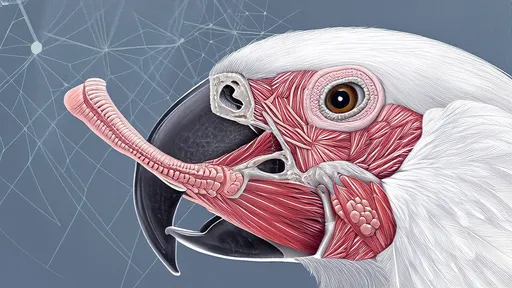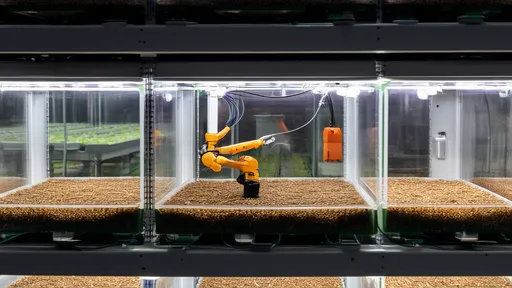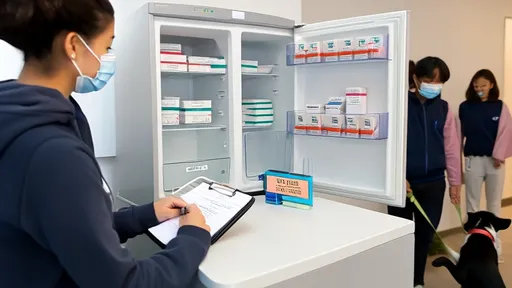The scientific community is abuzz with cautious optimism as early-stage clinical trials commence for a groundbreaking class of biologics targeting cellular aging. Dubbed "telomere maintenance vaccines," these experimental therapies aim to preserve the protective caps at the ends of chromosomes that naturally erode with each cell division. Unlike conventional vaccines that target pathogens, this innovative approach seeks to intervene in one of the fundamental mechanisms of biological aging.
At the heart of this research lies telomerase, the enzyme responsible for elongating telomeres. While most somatic cells suppress telomerase activity after embryonic development, cancer cells often reactivate it to achieve unchecked proliferation. The therapeutic challenge has been to stimulate telomerase sufficiently to delay cellular senescence without increasing cancer risk—a biological tightrope walk that has taken researchers decades to approach.
Early clinical data from Phase I safety trials show promise, with researchers reporting measurable telomere lengthening in circulating immune cells among healthy volunteers aged 50-65. "We're observing telomere extension equivalent to what we might see in cells from individuals 15-20 years younger," noted Dr. Elena Voss, lead investigator at the Basel Institute of Regenerative Medicine. "What's particularly encouraging is that we've detected no abnormal cell proliferation markers after twelve months of follow-up."
The vaccine platform utilizes modified mRNA encoding carefully selected fragments of the telomerase reverse transcriptase (TERT) protein. Unlike earlier gene therapy approaches that risked permanent genetic modification, this transient delivery system appears to provide just enough enzymatic activity to maintain telomeres without pushing cells toward immortalization. Animal studies demonstrated not just delayed aging markers but functional improvements—older treated mice showed enhanced neuromuscular coordination and maintained cognitive performance comparable to younger controls.
Critics caution that telomere length represents just one aspect of cellular aging, and questions remain about long-term effects. "We know shortened telomeres correlate with age-related disease, but we don't yet know if artificially maintaining them will translate to healthspan extension in humans," warned Dr. Rajiv Desai of the Harvard Aging Research Initiative. "The relationship between telomeres and aging is more complex than a simple 'longer is better' equation."
Beyond potential anti-aging applications, researchers are exploring whether telomere maintenance could benefit specific conditions. Separate trials are investigating the vaccine's effects in patients with dyskeratosis congenita—a rare genetic disorder causing premature telomere shortening—and as an adjunct therapy to improve immune cell longevity in chronic viral infections. Early observations suggest treated individuals show improved wound healing and reduced senescent cell accumulation in epithelial tissues.
The development timeline remains substantial, with Phase II efficacy trials not expected to conclude before 2027. Regulatory pathways present another uncertainty, as health authorities lack established frameworks for evaluating true anti-aging therapies. "We may need to demonstrate improvement in specific age-related biomarkers rather than claiming to 'treat aging' directly," explained Voss. "The field is navigating uncharted territory both biologically and bureaucratically."
Investment interest has surged, with three major pharmaceutical companies acquiring options on the technology. Analysts project the global market for senotherapeutic vaccines could exceed $50 billion annually if clinical success continues. Yet many scientists involved maintain measured expectations. "This isn't some mythical fountain of youth," stressed Voss. "At best, we're hoping to help people maintain health longer, not achieve immortality. The real victory would be compressing morbidity—giving people more years of good health before the inevitable decline."
As trial protocols expand to include older participants (70+ years) and longer observation periods, the research community watches closely. Success could redefine medicine's approach to aging, while failure would still advance understanding of telomere biology. Either way, these trials mark a significant departure from merely treating age-related diseases toward potentially modifying the aging process itself—a paradigm shift decades in the making.

By /Jul 15, 2025

By /Jul 15, 2025

By /Jul 15, 2025

By /Jul 15, 2025

By /Jul 15, 2025

By /Jul 15, 2025

By /Jul 15, 2025

By /Jul 15, 2025

By /Jul 15, 2025

By /Jul 15, 2025

By /Jul 15, 2025

By /Jul 15, 2025

By /Jul 15, 2025

By /Jul 15, 2025

By /Jul 15, 2025

By /Jul 15, 2025

By /Jul 15, 2025

By /Jul 15, 2025